If you're in the market for a laptop, you know how confusing it can be to sort through all of the options. One of the most difficult to understand, yet most critical to your decision, is the type of processor, or CPU (central processing unit), the laptop uses. Buy one that's not powerful enough, and your laptop will run like molasses in winter. Get one that's more than you need, and you're throwing money away.
Consult the following chart to determine which processor is a good match for your needs. Keep in mind that for each specific type of processor (e.g., Pentium or Athalon), the higher the speed (rated in gigahertz, or GHz), the faster the processor. If you plan to do heavy video editing or gaming, don't skimp on the processor—more power is always better.
| Netbook | Entry Level | Mainstream | High End | |
| Price Range (for laptops) | Under $400 | $400 - $550 | $550 - $800 | $800 plus |
| Uses | email, word processing, Web browsing | Simple photo editing, email, word processing, Web browsing | Most programs, including photo editing and some games | All programs, including video editing and games. |
|
Intel Processors |
 |
 |
   |
   |
|
AMD Processors |
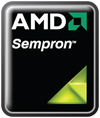 |
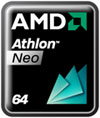 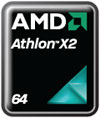 |
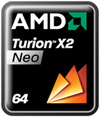 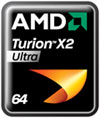 |

From Michelle on January 30, 2010 :: 2:33 am
Hi, I wanted to know what does the “P7450” after the words Intel Core 2 Duo Processor mean? And my computer has that on the large sticker that also contains the info for the memory etc, but it also has a small sticker that is the one in the $500-$800 column above “Intel Centrino2 inside”. Why is it telling me that the computer has the core 2 duo and also the centrino 2? Are they the same?
Reply